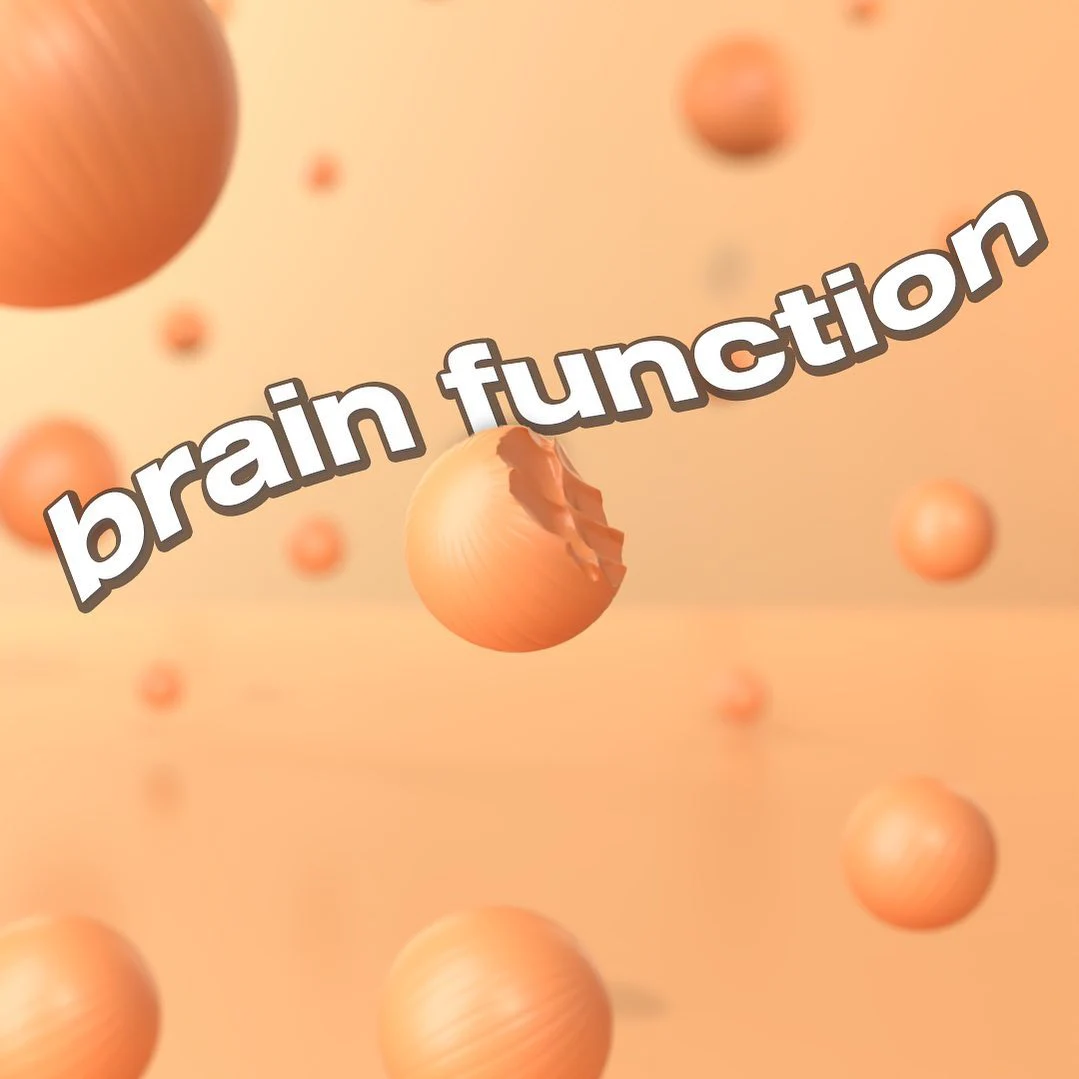🧡 Pre-Order now 🧡

Depression is a serious mental illness that can negatively affect how you think, feel, and act. Symptoms of depression include feeling sad or down, losing interest in activities you once enjoyed, withdrawing from friends and family, having difficulty concentrating or making decisions, feeling hopeless or worthless, and experiencing changes in sleep or appetite. If you are experiencing any of these symptoms, it is important to seek professional help.While medication and therapy are the most common treatments for depression, there is an increasing interest in the use of nootropics as a potential treatment option. Nootropics are substances that have been shown to improve cognitive function and provide other brain-boosting benefits. Some research has suggested that certain nootropics may also be effective in treating symptoms of depression.If you are interested in exploring whether nootropics could be a helpful treatment option for your depression, it is important to work with a mental health professional who can provide guidance and support. There is still much unknown about the safety and effectiveness of nootropics when used to treat depression, so it is important to proceed with caution. But if you are open to trying something new in your journey toward recovery, nootropics could be worth considering as one possible piece ofyour treatment puzzle.
Nootropics are a class of cognitive-enhancing drugs that are said to improve memory, focus, and motivation. They're also sometimes called "smart drugs" or "memory enhancers." Some people use them to boost their mental performance or energy levels. Others take them to help with conditions like ADHD, Alzheimer's disease, anxiety, depression, and age-related cognitive decline.Nootropics are thought to work by modulating neurotransmitters in the brain. This action can lead to improved brain function and better communication between cells. Nootropics may also protect the brain from damage due to toxins or stress.There is some scientific evidence to support the claims made about nootropics. However, most of the research has been done on animals rather than humans. More studies are needed to confirm the potential benefits of these substances in people.Some nootropics are available as dietary supplements, while others require a prescription from a doctor. It's important to talk with your healthcare provider before taking any type of supplement, especially if you have an underlying medical condition or take medications on a regular basis.


Nootropics are a class of cognitive-enhancing drugs that are said to have various benefits, including improved memory, focus, and concentration. Some nootropics are also said to have anti-inflammatory and neuroprotective properties.Depression is a mental disorder characterized by persistent low mood and loss of interest or pleasure in activities. It can cause feelings of sadness, fatigue, and worthlessness. Depression can also lead to physical problems such as insomnia, body aches, and headaches.Some people with depression may benefit from taking nootropics. Nootropics that have anti-inflammatory properties may help to reduce the inflammation that can contribute to depression. Neuroprotective nootropics may help to protect the brain from the damage that can be caused by chronic stress and anxiety.
Depression is a common mental disorder that is characterized by feelings of sadness, loss of interest, and low motivation. It can be caused by a number of factors, including genetic predisposition, environmental stressors, and brain chemistry. Depression can lead to a number of problems, including social isolation, substance abuse, and suicide. While there is no one-size-fits-all solution to depression, there are several treatment options available. These include medication, therapy, and self-care strategies such as exercise and relaxation techniques.
Current treatments for depression include antidepressants, talk therapy, and lifestyle changes. However, some people may not respond to these treatments, or they may only provide partial relief. For these people, nootropics may be a viable treatment option.Nootropics are a class of drugs that act on the brain to improve cognitive function. They have been shown to be effective in treating various conditions, including Alzheimer's disease, ADHD, and anxiety disorders. Some studies have also suggested that nootropics may be helpful in treating depression.There are several different types of nootropics available on the market today. Some of the most popular include Piracetam, Aniracetam, and Oxiracetam. These drugs work by increasing levels of neurotransmitters in the brain, which can help to improve mood and cognition.If you're considering taking a nootropic for your depression, it's important to speak with your doctor first. While these drugs are generally safe when used as directed, they can interact with other medications you may be taking for your condition. Additionally, it's important to make sure that you're buying from a reputable source to avoid counterfeit products or dangerous side effects.

Nootropics are a potential new treatment for depression that show promise in early studies. Although more research is needed to confirm their efficacy, nootropics offer a novel approach to treating depression.Nootropics are cognitive enhancers that have been shown to improve mood and alleviate symptoms of depression in animal models. Several classes of nootropics have been studied for their antidepressant effects, including choline-based drugs, ampakines, and omega-3 fatty acids.Early clinical trials in humans have yielded promising results, with one study finding that an omega-3 supplement improved depressive symptoms in patients with major depressive disorder (MDD). Other trials have demonstrated the antidepressant effects of choline drugs like citicoline and CDP-choline in patients with MDD and bipolar disorder.Ampakines, which increase levels of the neurotransmitter dopamine, have also shown promise as a treatment for depression. One study found that an ampakine called CX717 improved depressive symptoms in patients with MDD who had not responded to other treatments.Although more research is needed to determine the effectiveness of nootropics for treating depression, these cognitive enhancers offer a potential new avenue for treating this mentalillness.
Depression is a serious mental health condition that can negatively impact every aspect of a person’s life. It is estimated that 1 in 10 adults in the United States suffer from depression, which is why it’s important to find effective treatments. Nootropics are one possible treatment option for depression.Nootropics are sometimes called “smart drugs” because they are said to improve cognitive function. Some nootropics are also said to have mood-boosting properties. This is why some people think nootropics could be helpful for treating depression.The theory behind how nootropics work for depression is that they increase levels of important neurotransmitters like serotonin and dopamine. These neurotransmitters are thought to play a role in regulating mood, so by increasing their levels, it may be possible to alleviate symptoms of depression.Of course, more research is needed to confirm whether or not nootropics are effective for treating depression. If you’re considering taking nootropics for your depression, it’s important to speak with a doctor first as they can help you understand the risks and benefits involved.
Depression is a serious mental illness that can have a negative impact on every area of a person's life. It can cause problems with sleeping, eating, and concentrating. It can also lead to feelings of isolation, hopelessness, and worthlessness. Nootropics are substances that help to improve cognitive function and protect the brain from inflammation. They may also help to improve mood and reduce stress levels. While nootropics are not a cure for depression, they may help to improve symptoms and allow people to live more productive lives.

Nootropics are a class of substances that purportedly improve cognitive function. Although there is no definitive evidence that they work, a few small studies have shown that they may be effective in treating depression.Depression is a common mental disorder that can cause significant impairment in many areas of life. It is characterized by persistent feelings of sadness, anxiety, or worthlessness and can lead to problems with sleep, concentration, and energy levels.Nootropics are thought to work by improving communication between neurons in the brain. Some common nootropics include caffeine, omega-3 fatty acids, and Gingko biloba.Although more research is needed to determine whether or not nootropics are truly effective for treating depression, the few studies that have been conducted suggest that they may be worth trying for people who suffer from this condition.
Depression is a serious mental illness that can have a debilitating effect on an individual’s life. According to the National Institute of Mental Health, depression affects more than 16 million adults in the United States each year. While there are many conventional treatments for depression, such as medication and therapy, some people may also turn to natural or alternative treatments.Nootropics are one type of alternative treatment that has been studied for its potential to improve mental health. Nootropics are substances that improve cognitive function, and they have been suggested as a possible treatment for various conditions, including depression.One study found that the nootropic sulforaphane was effective in reducing depressive symptoms in rats (1). Sulforaphane is a compound found in cruciferous vegetables, such as broccoli and cabbage. In this study, rats were given sulforaphane supplements or a placebo for 14 days. The rats that received sulforaphane showed significantly less depressive behavior than those in the placebo group.While this study shows promising results, it is important to note that it was conducted on animals, so further research is needed to determine if sulforaphane could also be effective in humans with depression. However, thisstudy provides a potential natural treatment option for depression that could be worth exploring.
Depression and anxiety are two of the most common mental disorders in the United States. According to the National Institute of Mental Health, these disorders affect more than 18 percent of adults in the US every year.Nootropics are a class of drugs that have been shown to improve cognitive function and protect against age-related brain degeneration. Some studies have also suggested that nootropics may be effective in treating depression and anxiety.The nootropic phenibut is one such drug that has been shown to be effective in reducing anxiety and depression in human patients. In a study published in the journal Psychopharmacology, researchers found that phenibut was able to significantly reduce symptoms of both disorders compared to a placebo group.Phenibut is thought to work by mimicking the effect of GABA, a neurotransmitter that plays a role in regulating anxiety levels. The drug is generally well-tolerated, but it can cause some side effects including drowsiness and dizziness.

Nootropics are generally safe and well-tolerated, but they can have some side effects. The most common side effects include headaches, nausea, and gastrointestinal distress. Some people also experience dizziness, anxiety, and insomnia. Nootropics are not likely to cause addiction or dependence, but some people may experience withdrawal symptoms when they stop taking them.
Nootropics are a type of cognitive enhancer that have become popular in recent years. They are commonly used to improve memory, focus, and concentration. However, they can also have side effects, the most common of which are headaches, nausea, and insomnia.Headaches are the most common side effect of nootropics. They can be caused by the increased blood flow to the brain that nootropics can cause. Nausea is another common side effect, and it is usually caused by the same thing: an increase in blood flow to the stomach and intestines that can cause them to become inflamed. Insomnia is another potential side effect of nootropics because they can interfere with sleep cycles by causing someone to feel anxious or wired instead of tired at night.While these side effects can be unpleasant, they are usually mild and go away after a few days or weeks of taking nootropics. If you experience any more severe or persistent side effects, you should stop taking them and speak with a doctor.
depression, but there is growing evidence to suggest that they may be effective.Nootropics are a class of drugs that are designed to improve cognitive function. They have been shown to improve memory and attention span, and some studies suggest that they may also be helpful in treating depression. However, nootropics are not currently approved by the FDA for the treatment of depression, so more research is needed.

Depression is a serious mental illness that can have devastating consequences. Nootropics are a class of drugs that have the potential to treat depression. While more research is needed to fully understand how nootropics work, they offer hope for a new treatment for depression.
